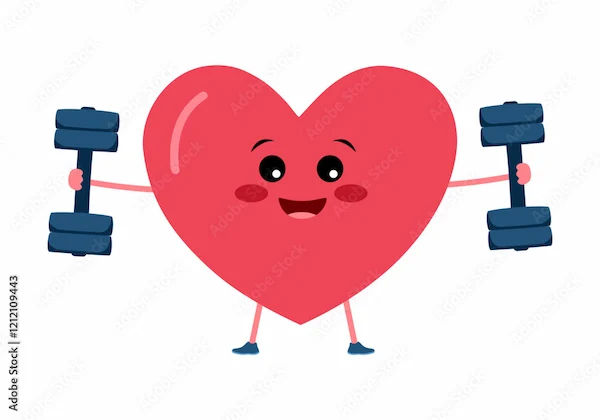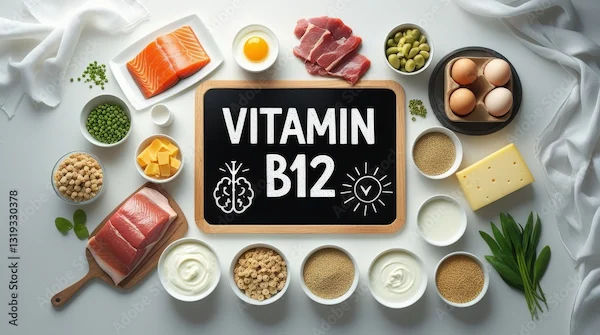Foods Bad For Heart: Know What Foods Are Bad For Your Heart!
Learn about the foods that can harm your heart, including processed foods, sugary treats, fried foods, and more. Understand the risks and make healthier choices to protect your cardiovascular health.

Written by Dr.Sonia Bhatt
Last updated on 3rd Jul, 2025

A heart-healthy diet is more than just about choosing individual foods or nutrients. It encompasses broader dietary patterns that can have a profound impact on your cardiovascular health. What you eat plays a pivotal role in regulating key factors such as blood pressure, inflammation, cholesterol levels, and triglycerides, all of which directly affect the health of your heart. On the other side, consuming foods that are harmful to your heart can lead to the buildup of plaque in arteries, elevated blood pressure, and increased inflammation, all of which heighten the risk of heart attacks, strokes, and other cardiovascular conditions. In this blog, we’ll explore the most common foods that can damage your heart and why avoiding them is crucial for long-term heart health.
Processed Foods
Processed foods are those that have been altered from their natural state through methods such as refining, adding preservatives, or using artificial additives. These foods are often high in unhealthy fats, sodium, and sugar, which can contribute to cardiovascular diseases.
1. Common Processed Foods to Avoid
Some of the common processed foods to avoid includes:
Bread and breakfast cereals
Canned vegetables
Cheese
Cakes and biscuits
Chips and snack foods
Sausage rolls and pies
Bacon, ham, and salami
Soft drinks and sugary beverages
Instant noodles
2. Why Processed Foods Are Harmful to the Heart?
Processed foods have become a common part of modern diets, but their impact on heart health can be severe. Understanding why these foods are harmful can help in making better dietary choices to protect cardiovascular well-being.
High in Unhealthy Fats: Contain trans fats and saturated fats, which increase bad cholesterol (LDL) and lower good cholesterol (HDL), leading to artery blockages.
Excessive Sodium Content: Processed foods are often loaded with salt, which raises blood pressure and increases the risk of heart attacks and strokes.
Added Sugars: Contribute to obesity, diabetes, and inflammation, all of which are major risk factors for heart disease.
Low in Essential Nutrients: Lack vital nutrients like fiber, vitamins, and minerals necessary for maintaining cardiovascular health.
Increases Inflammation: The artificial additives and preservatives in processed foods can trigger inflammation, further stressing the heart.
Sugary Foods
Excessive sugar intake is a significant contributor to cardiovascular diseases. Consuming too much refined sugar can lead to obesity, high blood pressure, and insulin resistance.
1. Common Sugary Foods to Avoid
Some of the common sugary foods includes:
Sugary beverages
Candy and sweets
Pastries and baked goods
Breakfast cereals and granola bars
Ice cream and desserts
Flavoured yogurts
Sweetened coffee and tea drinks
Jams, jellies, and syrups
Processed snacks
2. How Excess Sugar Harms the Heart?
Understanding how sugar affects the cardiovascular system can help in making healthier dietary choices to protect the heart.
Increases Obesity Risk: Leads to excess weight gain, a major factor in heart disease.
Raises Blood Pressure: High sugar intake can lead to hypertension, straining the heart.
Elevates Triglyceride Levels: Increased triglycerides can contribute to artery blockages and heart disease.
Leads to Insulin Resistance: A primary cause of type 2 diabetes, which significantly increases heart disease risk.
Fried Foods
Fried foods are a popular choice in many diets, but their excessive consumption can have serious consequences for heart health. The process of deep-frying significantly increases unhealthy fat content, making these foods a major risk factor for cardiovascular diseases.
1. Common Fried Foods to Avoid
Some of the most commonly consumed fried foods that should be limited or avoided include:
Fried chicken
French fries and potato wedges
Onion rings
Doughnuts and deep-fried pastries
Fried fish and seafood
Crisps and other deep-fried snacks
Tempura and battered foods
Fast food items like burgers with fried patties
Fried cheese sticks
Deep-fried sausages and hot dogs
2. How Fried Foods Affect the Heart?
While fried foods may be tasty, their effects on heart health can be detrimental. Understanding the risks can help in making healthier choices.
High in Unhealthy Fats: Fried foods contain trans fats and excessive saturated fats, which raise bad cholesterol (LDL) and lower good cholesterol (HDL), increasing the risk of clogged arteries.
Increases Risk of High Blood Pressure: The high sodium content in fried foods contributes to elevated blood pressure, putting additional strain on the heart.
Contributes to Obesity: Fried foods are calorie-dense and can lead to weight gain, a significant risk factor for heart disease and metabolic disorders.
Promotes Inflammation: The consumption of deep-fried foods can trigger inflammation in the body, which is linked to an increased risk of heart attacks and strokes.
Red and Processed Meats
Red and processed meats are widely consumed across the world, but excessive intake can have severe consequences for heart health. These meats are high in saturated fats, sodium, and harmful preservatives, all of which contribute to an increased risk of cardiovascular diseases.
1. Common Red and Processed Meats to Avoid
Some of the red and processed meats that should be limited or avoided include:
Beef (steaks, burgers, minced beef)
Lamb
Pork (bacon, sausages, ham)
Hot dogs
Salami and pepperoni
Deli meats and cold cuts
Meat pies and sausage rolls
Corned beef
Processed poultry products like chicken nuggets
Cured and smoked meats
2. Why Red and Processed Meats Are Harmful to the Heart?
While red meat provides protein and essential nutrients, excessive consumption can have negative effects on cardiovascular health. Understanding the risks can help in making informed dietary choices.
High in Saturated Fats: Red meats contain high amounts of saturated fats, which increase bad cholesterol (LDL) and contribute to artery blockages, raising the risk of heart disease.
Elevates Blood Pressure: Processed meats are packed with sodium and preservatives, which can lead to high blood pressure, putting extra strain on the heart.
Contains Harmful Preservatives: Processed meats often contain nitrates and nitrites, which have been associated with increased risks of heart disease and certain cancers.
Can Promote Inflammation: The processing methods used in curing and preserving meats can trigger inflammation in the body, contributing to long-term cardiovascular issues.
Dairy Products High in Fat
Dairy products are a key source of essential nutrients, but consuming high-fat dairy in excess can have negative effects on heart health. These products are rich in saturated fats, which can raise bad cholesterol levels and contribute to heart disease.
1. Common High-Fat Dairy Products to Avoid
Some of the high-fat dairy products that should be limited or avoided include:
Whole milk
Full-fat cheese (cheddar, cream cheese, gouda, brie)
Butter
Full-fat yoghurt
Heavy cream and whipped cream
Ice cream
Full-fat dairy-based sauces and dressings
2. Why are High-Fat Dairy Products Harmful to the Heart?
While dairy provides important nutrients like calcium and protein, excessive consumption of high-fat dairy can pose risks to cardiovascular health. Understanding these risks can help in making better dietary choices.
High in Saturated Fats: Full-fat dairy products contain high amounts of saturated fats, which increase bad cholesterol (LDL) levels and contribute to plaque buildup in arteries, raising the risk of heart attacks and strokes.
Contributes to Obesity: The high-calorie content in full-fat dairy can lead to weight gain, a major risk factor for heart disease and metabolic disorders.
May Increase Blood Pressure: Excessive intake of high-fat dairy products can lead to elevated cholesterol levels, which in turn contribute to high blood pressure and heart strain.
Raises Risk of Type 2 Diabetes: Studies suggest that consuming too much high-fat dairy may be associated with an increased risk of insulin resistance, which can lead to type 2 diabetes—a major risk factor for heart disease.
Consult Top Cardiologists For More Heart-Harmful Foods
Conclusion
Maintaining a heart-healthy diet is essential for preventing serious cardiovascular conditions such as heart disease, stroke, and other related complications. The foods we consume directly impact key health factors like blood pressure, cholesterol levels, inflammation, and triglycerides, all of which play a crucial role in heart function. Consistently consuming foods high in unhealthy fats, excessive sugar, sodium, and artificial additives can lead to clogged arteries, high blood pressure, and increased inflammation, significantly raising the risk of heart-related issues. Processed foods, fried foods, sugary treats, and high-fat dairy products should be limited or replaced with healthier alternatives that nourish the body without harming cardiovascular health.
Consult Top Cardiologists For More Heart-Harmful Foods

Dr. Anand Ravi
General Physician
2 Years • MBBS
Bengaluru
PRESTIGE SHANTHINIKETAN - SOCIETY CLINIC, Bengaluru

Dr. Tripti Deb
Cardiologist
40 Years • MBBS, MD, DM, FACC, FESC
Hyderabad
Apollo Hospitals Jubilee Hills, Hyderabad

Dr. Bhukya Pavan Kalyan
General Physician
5 Years • MBBS DNB Paediatrics
Bengaluru
PRESTIGE SHANTHINIKETAN - SOCIETY CLINIC, Bengaluru

Dr. Zulkarnain
General Physician
2 Years • MBBS, PGDM, FFM
Bengaluru
PRESTIGE SHANTHINIKETAN - SOCIETY CLINIC, Bengaluru

Dr. Janjirala Seshivardhan
Cardiologist
7 Years • MBBS,DNB(GM),DM(Cardiology)
Manikonda Jagir
Apollo Clinic, Manikonda, Manikonda Jagir


